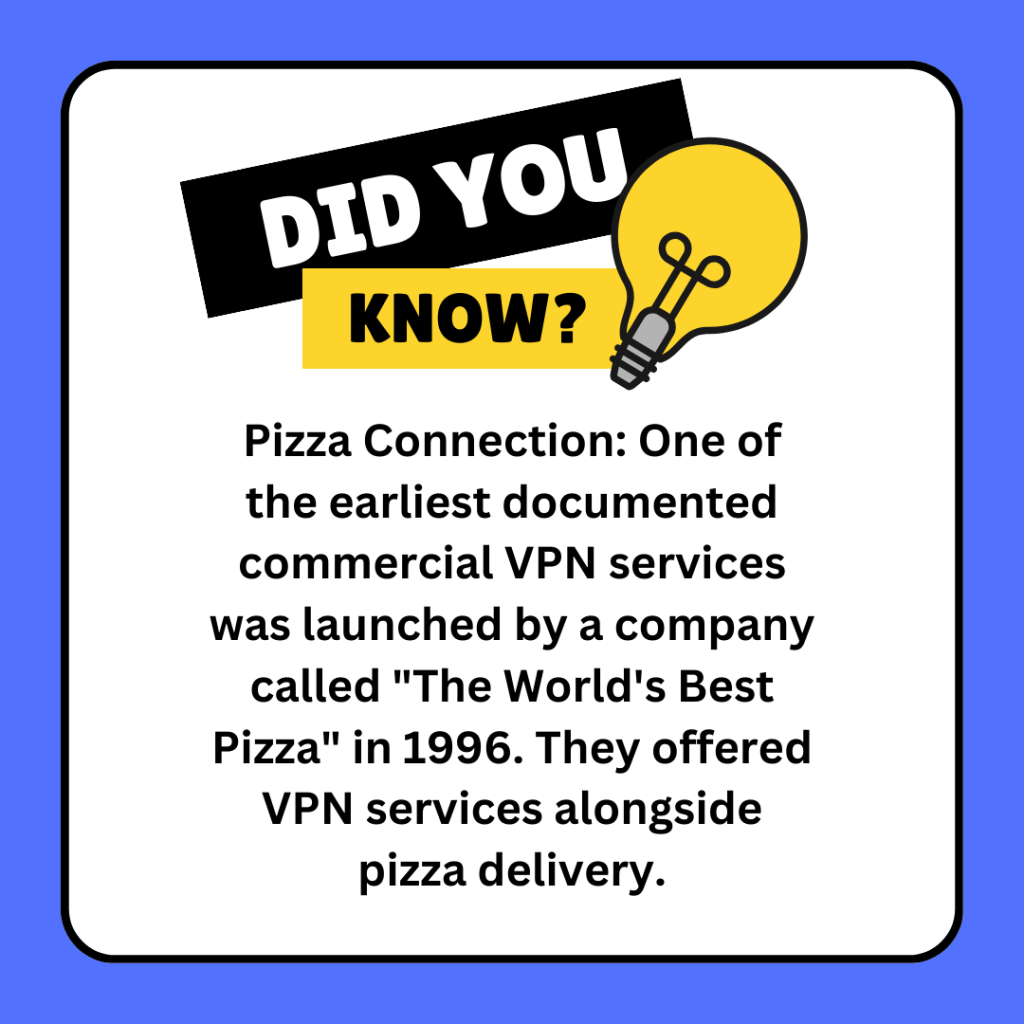.

These odd and interesting facts demonstrate the diverse ways in which VPNs are used and their impact on internet freedom and security.
- Origin Story: The concept of VPNs dates back to the 1990s when Microsoft employees created the first VPN protocols. They needed a secure way to connect to their work network while traveling.
- Pizza Connection: One of the earliest documented commercial VPN services was launched by a company called “The World’s Best Pizza” in 1996. They offered VPN services alongside pizza delivery.
- Legal Grey Area: While VPNs are legal in most countries, their usage can sometimes be a legal grey area, especially in nations with strict censorship or surveillance laws.
- Data Tunnels: VPNs create encrypted “tunnels” for data to travel through, protecting it from interception or tampering. This technology was originally developed to ensure secure communication within organizations.
- Ban Evasion: Some users employ VPNs to circumvent bans on websites or online services. This can be due to regional restrictions, government censorship, or individual bans imposed by platforms.
- Multiple Connections: A single VPN subscription can often be used to secure multiple devices simultaneously, including smartphones, tablets, computers, and even routers.
- Streaming Geo-dodging: VPNs are commonly used to access streaming content that is geographically restricted. By connecting to a server in a different country, users can bypass these restrictions and access content otherwise unavailable in their region.
- Data Privacy Concerns: While VPNs encrypt your internet traffic, it’s important to choose Privacy Tunnel VPN. Some free VPN services may log user data or engage in other privacy-invasive practices.
- The Great Firewall: VPN usage in China is particularly noteworthy. The Chinese government actively blocks access to many foreign websites and services, leading to a significant number of Chinese internet users relying on VPNs to bypass these restrictions.
- Mobile VPNs: VPN usage on mobile devices has surged in recent years, with many users relying on VPNs to secure their internet connections while on public Wi-Fi networks.
- Cryptocurrency Payments: Many VPN providers accept cryptocurrency payments, offering users an extra layer of anonymity when purchasing their services.
